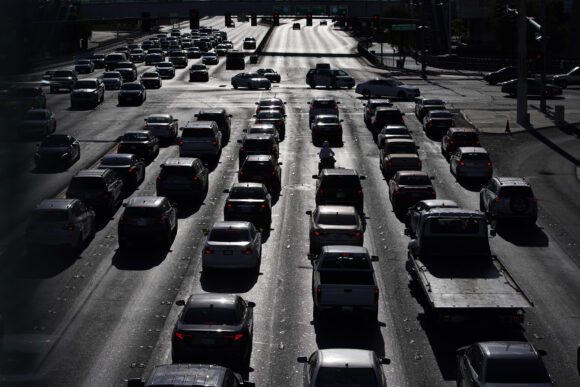A driver may file a “John Doe” civil action against an unknown driver, even without first obtaining an statement from a third-party witness. But an affidavit must be produced promptly upon request, the South Carolina Supreme Court decided Wednesday.
The court was faced with a question about South Carolina’s uninsured motorist law, after an 2015 accident injured a passenger in Fairfield County. The passenger, Peter Rice, filed suit against the unidentified driver who allegedly veered across the center line of a highway and forced the vehicle Rice was in, driven by Bobby Rae Dye, off the road and into a tree.
Progressive Insurance Co. was listed as the uninsured motorist carrier in the case, according to the motion to dismiss in Fairfield County Circuit Court.
“This case presents the question of whether compliance with the witness affidavit requirement in subsection 38-77-170(2) of the South Carolina Code (2015) is a condition precedent to the filing of a ‘John Doe’ civil action. We hold it is not,” Justice John Cannon Few wrote in the opinion.
 Rather, the witness statement may be produced after the commencement of the lawsuit, but the affidavit should be produced promptly. “If it is not, the action is subject to dismissal,” the court said.
Rather, the witness statement may be produced after the commencement of the lawsuit, but the affidavit should be produced promptly. “If it is not, the action is subject to dismissal,” the court said.
The high court upheld an appeals court decision, but for different reasons, and remanded the case for trial.
In the proceedings, Rice filed his civil action against Doe. Doe actually answered, and Rice produced the witness affidavit a day later, the court explained. Months later, Doe filed a motion to dismiss, arguing that Rice had failed to comply with the law and produce an affidavit before litigation began in accidents without physical contact between the vehicles.
A trial judge agreed – after a previous judge had differed on the matter – and dismissed the suit. The state Court of Appeals reversed that decision, deciding that the second trial judge had no authority to overrule another judge. The Supreme Court sidestepped that point, finding that a witness affidavit is not required before the filing of a John Doe action.
“Our analysis is simple—the statute does not provide that the affidavit must be filed as a condition precedent to filing the action,” the justices noted. But they recognized that a witness is essential.
“Initially, therefore, we wonder why any plaintiff in such a case would not be eager to produce the affidavit at the earliest opportunity,” the court said. The plaintiff must produce the affidavit in the discovery process.
“Our courts will not countenance the use of delay in producing the affidavit as an element of strategy,” the opinion reads.
Was this article valuable?
Here are more articles you may enjoy.


 Credit Suisse Nazi Probe Reveals Fresh SS Ties, Senator Says
Credit Suisse Nazi Probe Reveals Fresh SS Ties, Senator Says  LA County Told to Pause $4B in Abuse Payouts as DA Probes Fraud Claims
LA County Told to Pause $4B in Abuse Payouts as DA Probes Fraud Claims  Why 2026 Is The Tipping Point for The Evolving Role of AI in Law and Claims
Why 2026 Is The Tipping Point for The Evolving Role of AI in Law and Claims  Berkshire Utility Presses Wildfire Appeal With Billions at Stake
Berkshire Utility Presses Wildfire Appeal With Billions at Stake 